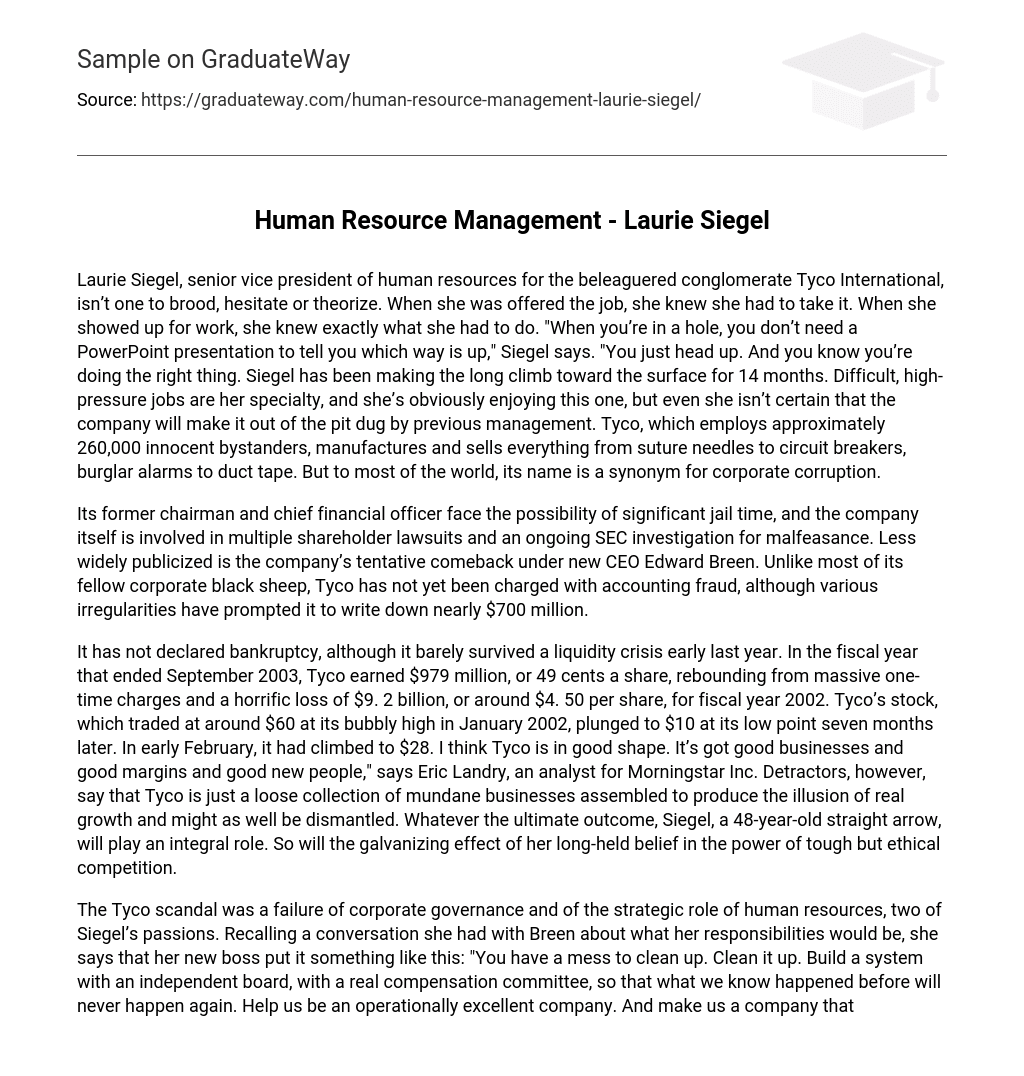Laurie Siegel, senior vice president of human resources for the beleaguered conglomerate Tyco International, isn’t one to brood, hesitate or theorize. When she was offered the job, she knew she had to take it. When she showed up for work, she knew exactly what she had to do. “When you’re in a hole, you don’t need a PowerPoint presentation to tell you which way is up,” Siegel says. “You just head up. And you know you’re doing the right thing. Siegel has been making the long climb toward the surface for 14 months. Difficult, high-pressure jobs are her specialty, and she’s obviously enjoying this one, but even she isn’t certain that the company will make it out of the pit dug by previous management. Tyco, which employs approximately 260,000 innocent bystanders, manufactures and sells everything from suture needles to circuit breakers, burglar alarms to duct tape. But to most of the world, its name is a synonym for corporate corruption.
Its former chairman and chief financial officer face the possibility of significant jail time, and the company itself is involved in multiple shareholder lawsuits and an ongoing SEC investigation for malfeasance. Less widely publicized is the company’s tentative comeback under new CEO Edward Breen. Unlike most of its fellow corporate black sheep, Tyco has not yet been charged with accounting fraud, although various irregularities have prompted it to write down nearly $700 million.
It has not declared bankruptcy, although it barely survived a liquidity crisis early last year. In the fiscal year that ended September 2003, Tyco earned $979 million, or 49 cents a share, rebounding from massive one-time charges and a horrific loss of $9. 2 billion, or around $4. 50 per share, for fiscal year 2002. Tyco’s stock, which traded at around $60 at its bubbly high in January 2002, plunged to $10 at its low point seven months later. In early February, it had climbed to $28. I think Tyco is in good shape. It’s got good businesses and good margins and good new people,” says Eric Landry, an analyst for Morningstar Inc. Detractors, however, say that Tyco is just a loose collection of mundane businesses assembled to produce the illusion of real growth and might as well be dismantled. Whatever the ultimate outcome, Siegel, a 48-year-old straight arrow, will play an integral role. So will the galvanizing effect of her long-held belief in the power of tough but ethical competition.
The Tyco scandal was a failure of corporate governance and of the strategic role of human resources, two of Siegel’s passions. Recalling a conversation she had with Breen about what her responsibilities would be, she says that her new boss put it something like this: “You have a mess to clean up. Clean it up. Build a system with an independent board, with a real compensation committee, so that what we know happened before will never happen again. Help us be an operationally excellent company. And make us a company that attracts and develops excellent talent. “





